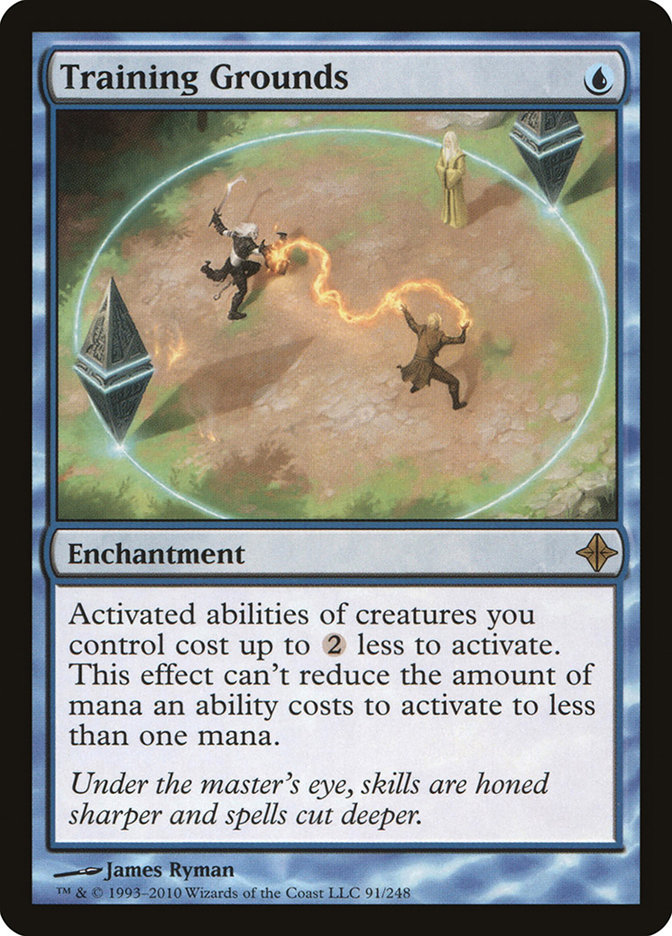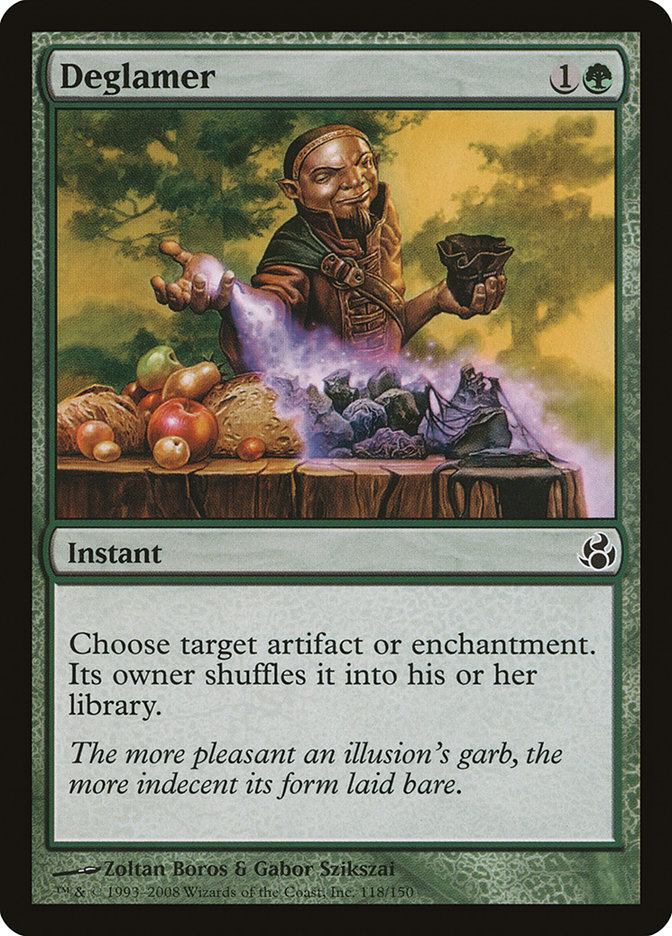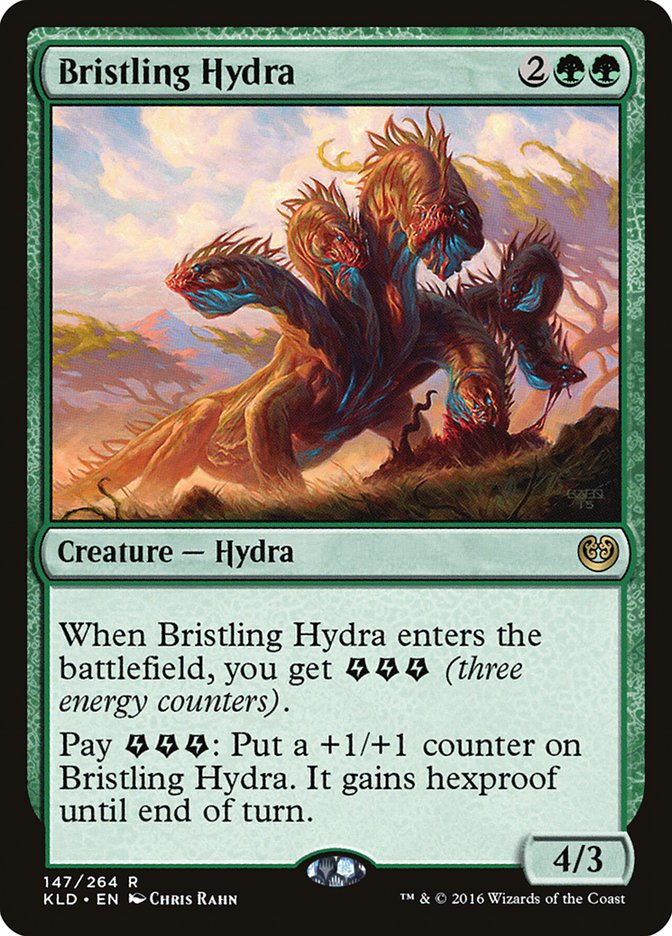Identifying greatness is easy. Someone does better than the field, thus proving their excellence. The longer the duration, the more cemented their legacy becomes.
Explaining said greatness, however, isn’t always as clear-cut. Being able to articulate the minute differences that allow one to stand on the precipice of greatness while others only dream of it is a much more difficult task.
Further, understanding underperformance from these “greats” can be near-impossible. Skills are shaped on a complex journey of discovery, repetition, understanding, and acceptance. They’re difficult to obtain, yet easily lost. They can be false hope in one’s darkest hour, and yet the light at the end of the tunnel.
It’s truly an enigma.
Confused? You should be. I sure am. My job is to know things, but right now that couldn’t be further from the truth. Normally, on weeks like this, one would think I’m underselling myself to keep secret something amazing for Pro Tour Ixalan. Sometimes they would be correct, but not this time. Also I wouldn’t be misleading! Honestly, the more drafts I do in Ixalan, the more lost I feel.
What makes matters worse is that my once-unequivocal prowess in Standard feels more like a distant memory. I now feel behind the curve when it comes to the format, one that I’ve already had to play for two important events and have a third coming up in two weeks.
I haven’t been playing the best Magic as of late. I don’t know if it’s caused by a dip in generic ability or a product of a lack of understanding in the formats. It’s just odd to feel so lost after so much recent high-level success. This self-reflection has gotten me to evaluate a few things and look at the grand scheme of skill in an almost existential way: how it’s formed, what causes it to waver, and how to realize issues in real time.
Learning a Skill
So how is a skill learned? Lord Google defines it as “An ability and capacity acquired through deliberate, systematic, and sustained effort to smoothly and adaptively carryout complex activities or job functions involving ideas (cognitive skills), things (technical skills), and/or people (interpersonal skills).” That makes sense to me. I mean, I spent years simply playing Magic. Even if it was inefficient, I learned many skills as I went along. Only when I decided to take it more seriously did I begin evaluating if my formed beliefs were correct and if I was efficiently learning them.
Becoming talented in Magic, for me, was a long road of trial and error. I first had to lay down a foundation, and that mostly consisted of answering the questions I knew existed. Slowly I would become aware of the larger scope of things that existed in this game, and thus create more questions to answer. Eventually I realized that some of my initial problem-solving abilities were flawed, and early fundamentals I’d created were wrong. That I would have to break down my foundation in the attempts to build an even stronger one.
That’s what makes understanding greatness so difficult. Those trying to replicate another’s greatness will rarely achieve it due to their own foundations’ flaws. I didn’t quite understand this for years. Many people, even peers, would praise me for my ability to read a metagame or design a sideboard plan, but my go-to rebuttal was that all my “secrets” were in my content, that I had already written about all of this before, and didn’t understand how they couldn’t replicate it with my detailed blueprints. Honestly, I just thought people didn’t read my articles. It wasn’t until I tried to replicate some of my peers’ tactics that I could understand this phenomenon.
The PGO Effect
Never before has “The Peach Garden Oath” been more on top of Magic and the media that surround it. They’ve been in the finals of the last two Limited Team GP finals (winning one of them), and William “Huey” Jensen just dominated the World Championship with Owen Turtenwald and Reid Duke finishing right outside the Top 4. What makes it even more impressive is that they are constantly on top of competitive Magic, and years ago I took a long look at why that was the case.
I wasn’t always on top of Magic’s center stage, as some consider now. In fact, between the years of 2011 and 2013, I was in fact pretty bad at Magic. At least I considered myself bad, and thought I was underperforming. I wanted to figure out what I could do better, and my revelation came to me at a very implausible time.
It was at the end of 2013, and I’d just won the Invitational in Indianapolis. Maybe I was waiting for one of my Top 8 matches, I don’t remember, but at one point I was watching Reid Duke in the Legacy Open. He was playing Mono-Black Pox, and was maybe 3-4 at the time. Even with nothing on the line, he continued playing out the event with what looked like the same effort he would treat any high-level match of Magic. He was dedicated, determined, and focused, something I couldn’t fathom seeing myself do with that record. It was a hollowing experience for me, and I spent much of my drive back to Roanoke thinking about it. Not how I just won the Invitational, but why on Earth would Reid do that to himself. It’s foolish to waste your time like that, right?
That right there was my first hangup. I couldn’t understand it, so I assumed it was wrong.
I can look back in my career and see many instances of dismissiveness towards those who operate differently from what I perceived as optimal. I didn’t respect loving the game more than the results, so I assumed others couldn’t either. Eventually this lesson taught me to stop conceding early and dropping prematurely, and to play every game the same.
Soon after, I found myself in the Top 4 of a Standard Grand Prix in Cincinnati, up a game, dead on the battlefield, but still fighting it out just in case. That’s exactly what happened, as my opponent respected my untapped mana and didn’t go all-in on an attack, clearing out planeswalkers instead. I went on to get very lucky and win the game, a game I couldn’t have won before learning the valuable lesson Reid unknowingly taught me.
Around that time, I realized that Owen and Huey had been dominating high-level events, constantly playing the “best” strategies. Even if I didn’t like their lists personally, it still got me to thinking how that differed from my own game. At the time I believed myself to be worse at Magic than the best and needed to lean on niche brews to “sidestep” the competition. It worked, but not consistently. It took some soul-searching, but seeing those two constantly play the best decks motivated me to begin working on my own technical game. I got the urge to become actually great at playing the game and leveraging that as well as my deck construction prowess. This caused me to stop working on brews and instead tune the format’s best decks to become well-oiled machines. I infused something I’m good at with a brand new work ethic.
That’s how PGO made me better at the game, but they didn’t know that at the time. Nor could they have personally identified those issues in my own game and helped me along the way, as they didn’t know what issues I had. I had to identify myself that the foundation I had laid down was flawed and needed repair. Only then could I correct old answered questions and add new ones to be solved. I had to be aware there was a problem, and willing to solve it.
This is a very common misconception when players ask me for advice on how to get better. They don’t even know there may be problems in their own game causing my answers to feel misguided and wrong. How on Earth can I tell them how to get better without knowing what foundation they’ve made for themselves? I have no clue what they believe to be true, or what questions they believe they’ve answered.
There’s no easy way to become great at something, nor is there a “fast track.” Society has been made to believe in the easy way, but it rarely works, and sometimes doesn’t truly exist. Crash diets have instant results but often yield no long-term results when concluded. Take it from me: I know this one to be true. Now consider sideboarding guides. They help you in the moment understand the basics of any given strategy, but they don’t help create a foundation on how to make adjustments yourself. In difficult situations, you won’t be able to think quickly enough in the moment. You’ll “gain all the weight back.”
You don’t just become great at Magic after a period of dedication, or maintain any level of greatness once it’s achieved. That’s exactly what I’m struggling with right now, and I take my own medicine! Well, usually. I was doing amazing things mere months ago. In a stretch of four Grand Prix, I had three Top 8s, with the fourth being a 13-2 record resulting in an eleventh-place finish. Now I’m seeing middling results, backed by a discomfort in my own abilities. I could consider it a fluke, or I could work at finding my errors, as I’m very confident there are some.
For starters, I got lazy when it came to Standard preparation. Given that Energy, and Ramunap Red would continue to be great contenders in Standard, I shortcutted much of my perceived understanding of the archetypes. I had a foundation of understanding that I didn’t want to renovate, given how much I worked to create it. That was wrong of me, as much of what I believed about Temur Energy was wrong.
I knew losing Tireless Tracker would hurt Temur Energy, but never did I imagine the loss would completely shift how the deck operated. The loss of this card caused the deck to lose its ability to grind efficiently. No longer did the deck have an easy formula to defeat control decks, and I vastly underestimated the deck’s new weakness to the strategies. Now the deck barely had any true card advantage, and this caused more variance to be pumped into the deck’s draws, as it was extremely noticeable when you did or didn’t draw Rogue Refiner. This alone shifted how the deck should play out, but I didn’t look close enough to grasp this. It was a lesson to be learned at the World Championship when PGO showed up with a “go big” strategy I was ill-equipped for, and it cost Team Genesis multiple matches in the event.
Now, it’s easy to miss things in Magic, given how many moving pieces exist and how complex they are as a collective. You can’t beat yourself up for missing combinations of cards others may have found, as there are just too many to be constantly aware of. Sometimes things just get missed, but that’s not what happened here. I chose to ignore the fact that many things have changed, and instead decided to continue believing things that were no longer true. I just couldn’t see it right away, as I trusted too much in what I already thought I knew.
If there was ever a piece advice I could bestow on you, it would be this:
Never hesitate to question if it’s possible you’re wrong.
This applies at any time in your process. Always be excited to find errors in your own game, and encourage yourself to be better than your present self. I and other content producers will be here to provide you decklists and sideboard plans, but the only way to truly improve is to rewrite the lessons you’ve previously learned. Don’t just try to replicate greatness, but attempt to understand how to implement it into your own game.
That’s all we are trying to do all the time, even the pros. There’s no big secret. We just want to be better than our present selves.
P.S. Sideboard out Bristling Hydra against Abzan/Esper Tokens.
No!






